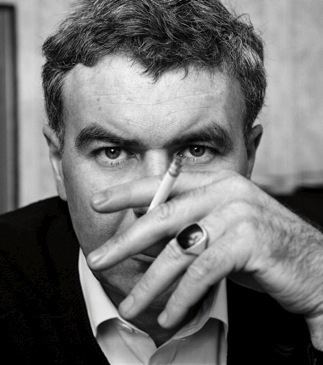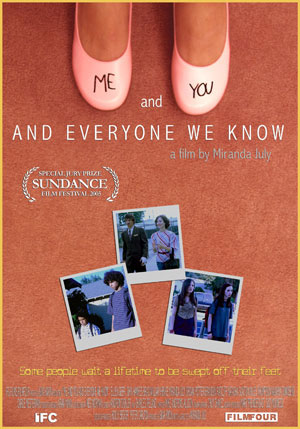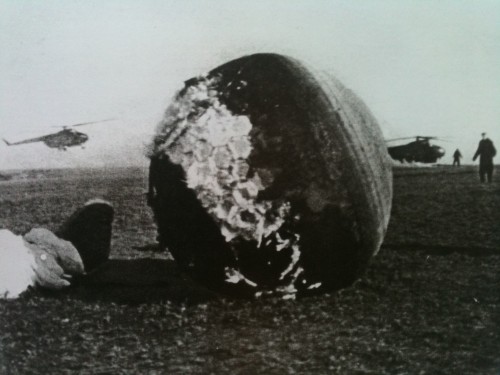No Tricks
Like many of us, I’ve read “On Writing” by Raymond Carver numerous times. It holds many useful ideas. There is a stage of our own creative writing. (I believe this phase usually arrives in the mid-20s, but possibly I am in error—perhaps it arrives after so many years of practicing the craft, not so much a writer’s age.) Either way, this stage involves reading copious interviews, craft books, and essays on writing, by writers. Apparently, as writers, were are seeking some golden ticket, some integral advice, etc. I believe most writers leave this period, and then, you know, write.
What is the most famous (or infamous) line from the Carver essay? No tricks.
“No tricks.” He says. “Period. I hate tricks.”
First, I like tricks. So what? Others have written the same. Second, Carver is wrong. He doesn’t hate tricks, he uses them. He especially employs tricks in the shorter form. Why? Because “tricks” are not tricks. Tricks are technique. Technique is important to the short story, very important to the sudden fiction, and absolutely essential to the flash fiction form. We flash writers have fewer words. We need artistry.
Let me show you Raymond Carver using some tricks. Read “Little Things” here.
OK, onward.
wwword
The flash writer is a disciple of the poet. The poet a disciple of the word. How to say much with few. How to have a word echo, bloom, unlock or unhinge, shudder or pop, show or embrace itself as thing, expand or fall into something off the page, become or allow a potential to become, something much larger than itself.
In Damien Dressick’s “Four Hard Facts about Water,” the words are steak sauce. The turn, to get us to the bitterness, the banality/absurdity of death, to the god/godlessness of the event, the thing, the disbelief. Steak sauce.
In “Dulce et Decorum Est” the word is flung. A body flung, and we are in 1914-1918, the human mind/technology meets the human mind/our perpetual desire to kill one another. Enter flame throwers/gas/machine guns/tanks/all of the etc. of technology. Degree of killing. Attrition as strategy. Everything upside down. Flung.
In Raymond Carver’s “Little Things,” the word is flowerpot.
In “Survivors” by Kim Addonizio, the word is parrot.
In Dave Eggers’s “Bounty,” the words are curved chips. Curved chips get us off the page, into the philosophical, curved chips off that last line, off God. Yes.
Jolly Ranchers in “The Last Stop” by Jenny Halper. Sometimes one object can characterize and exposition, can show, can let us inside.
It may be useful to seek the word in all poems, all flash fictions, as an exercise of the writerly mind. And then of course to ask your own self (the editor one)—where are my words, the ones that if omitted, would leave such a hole as to let all the air out, as to have the entire text collapse on itself like a pierced balloon? It is one way of looking, the word.
“You have no idea how repulsive it is to borrow a pencil only to discover it is a mimi kakki”

Sometimes I turn on one of the local Western Massachusetts channels and there is a commercial to promote the news. You see an anchor, then the anchor’s name, then the anchor talking in earnest about their roots in the area. “I’m Slop Slowdorf,” they might say. “I renewed my wedding vows at the Dr. Seuss Memorial. The Slowdorfs have lived in Springfield for six generations. How lucky am I to live and work in the same town where I grew up?” And watching this commercial I grow terrified and throw soup at the television. READ MORE >
It is Friday: Go Right Ahead
Booze takes a lot of time and effort if you’re going to do a good job with it
I want to wrangle. Who wants to wrangle?
Arc of delight
Bumped into the commode!
Oohh, look what we have here (scotch under car seat)
That morning she pours Teacher’s over my belly and licks it off
I need a festival
Here is some math: fuck plus you
Hummers? What are hummers? Hummers are time-controlled shots of liquor
Look, counsel and process the events, or
decorate the loaf. Send it to the oven
Friends, I thought this was living. A house where no one was home, and all I could drink.
Carve
 Here is an interview with Carver biographer Carol Sklenicka at The Economic Times, India’s leading business newspaper. This website is quite the thing, especially for the epileptic. It is cluttered and jangly and tries to sell you every square inch of someone’s soul or something. Just focus on the interview.
Here is an interview with Carver biographer Carol Sklenicka at The Economic Times, India’s leading business newspaper. This website is quite the thing, especially for the epileptic. It is cluttered and jangly and tries to sell you every square inch of someone’s soul or something. Just focus on the interview.
Noted: a dip in sales of Carver’s books. Why? Why, person who wrote “…a masterful biography rated by the New York Times as one of the best 10 books of 2009”?
For one thing, he was too much imitated and for another, it is usually more important for younger writers to look at living writers.
The imitation thing is one persistent myth, I’ll say that. Is it really more important for younger writers to look at living writers? I absolutely disagree, and my MFA program disagreed, and I am thankful.
Another dead person whose work I miss

Just let me sleep, woman!
So I’m making my way through this forthcoming Raymond Carver biography, and really enjoying reading it alongside Where I’m Calling From, the stories in which, I think, are arranged chronologically. It’s interesting to see how Carver’s ideas and fears manifest themselves on the page. I hadn’t read Carver for a few years, so most of the stories seem pretty fresh. Also, I’m really amused by his dialogue, which could’ve been taken from my own life. For instance, in “The Student’s Wife,” Carver writes:
“I’d like us both just to live a good honest life without having to worry about money and bills and things like that. You’re asleep,” she said.
“I’m not,” he said.
“I can’t think of anything else. You go now. Tell me what you’d like.”
“I don’t know. Lots of things,” he mumbled.
Well, tell me. We’re just talking, aren’t we?”
“I wish you’d leave me along, Nan.” He turned over to his side of the bed again and let his arm rest off the edge. She turned too and pressed against him.
“Mike?”
“Jesus,” he said. Then: “All right. Let me stretch my legs a minute, then I’ll wake up.”
In a while she said, “Mike? Are you asleep?” She shook his shoulder gently, but there was no response.
I mean, who hasn’t been there? Sometimes I just want to sleep and dream of sexy female robots and stealing a car and driving it down to Miami and joining the Hurricanes (a team I don’t even like, which makes the dream weirder) and picking off not one but two errantly thrown passes over the middle and returning them for touchdowns against hated rival Notre Dame, and I guess just not waking up to talk about life and stuff. Too much to ask at this hour goddammit?
But this post actually wasn’t about Carver or my aborted dreams of football glory. It was about the late John Leonard, who died late last year from lung cancer at the age of 69. Leonard’s book review section in Harper’s was always the first thing I turned to when I’d get the magazine. Guy always had quirky, wide-ranging book choices, and his reviews were beautifully written in their own right. Benjamin Moser has since taken over for Leonard, and I’m just having a really hard time getting excited for his New Books findings. It’s just not rocking. Anyone have any favorite reviewers?





